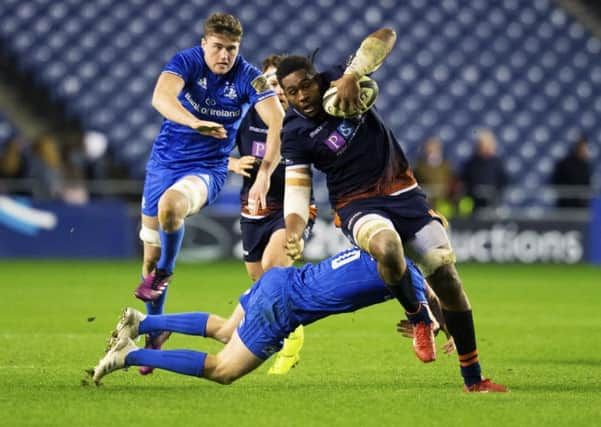Allan Massie: Absence of Welsh in Heineken Cup quarter-finals a warning to those keen on third pro team


Since Leinster play Ulster and Racing 92 play Toulouse, Ireland and France are each guaranteed one semi-finalist. Ireland may have two if Munster beat Edinburgh at Murrayfield, Scotland none if Edinburgh lose that match and Glasgow are beaten by Saracens at Allianz Park. Alternatively, of course, we may have both Scottish clubs in the last four. This would be remarkable. Edinburgh have obviously the better chance, and not only because they are at home.
While there may be doubts about the ability of the Glasgow forwards to achieve even equality with their opponents, the Edinburgh pack was pretty well the Scotland pack against Wales and England and more than held its own.
Advertisement
Hide AdAdvertisement
Hide AdNow, reinforced by the outstanding Fijian Bill Mata and, at some point, by John Barclay recovered from his long injury, it need have no fear of the Munster pack, whatever its fine pedigree.
Glasgow have reason to think the gods have it in for them. Their only previous quarter-final was also away to Saracens, and then they found themselves in the same pool this season. All three matches were lost, and the best that can be said is that the two this season were very much closer than the quarter-final in 2017 when they were blown away in the first 20 minutes. Saracens may not be quite as good as they were then but, while they have lost several away games in the English Premiership, they won all six pool games and they are almost never beaten at home.
The presence of both Scottish clubs and the absence of every Welsh one invites speculation, especially in view of the record of Scotland-Wales matches over recent years.
One explanation may be that the Welsh clubs aren’t as well coached as their national team, perhaps not as well coached as Glasgow or Edinburgh either. This is not, of course, something which can be proved.
A second explanation is more persuasive: that talent is concentrated in Scotland and dispersed in Wales, or, to put it another way, there are simply aren’t enough good players in Wales to staff four professional teams.
Certainly if the positions were reversed, and there were four Scottish pro teams and only two Welsh ones, it’s highly improbable that a quarter-final line-up would look much like this year’s.
Those of us who would still like to see a third Scottish pro club re-established should recognise that spreading talent more thinly would likely lead to weak performances all round.
Whatever happens this afternoon, it’s been a pretty good season for both Edinburgh and Glasgow with – one hopes – more success to come. Yet constructing a successful pro team here requires a delicate balancing act.
Advertisement
Hide AdAdvertisement
Hide AdGlasgow and Edinburgh are both owned – still owned, one might say – by the SRU. So they have two functions which might not be the case if they had other owners.
First, you are looking to be strong enough to compete for honours in the Pro14 and European Cup. Second, you are required to identify and nurture young Scottish talent, players who may contribute to country as well as club.
You can achieve the first by entering the market for ready-made players not qualified for Scotland. French clubs, notably Toulon, have had great success while scarcely paying lip-service to the needs of the French national team.
But this is not a course that can be taken by Edinburgh and Glasgow, clubs owned and largely financed by the SRU.
This being so, this week’s announcement of four new Edinburgh signings was a bit surprising and even slightly worrying. The recruits were two Fijians who have starred on the IRB Sevens circuit, a South African hooker and an Australian back-row forward who is reportedly Scottish qualified. Now I’m sure all four are good players who will contribute something to Edinburgh and probably strengthen the club.
Moreover one should recognise that, on account of the World Cup in the autumn, Richard Cockerill is then likely to be deprived of at least two-thirds of a match-day squad, and half of one when the Six Nations comes round again.
So it’s reasonable to recruit seasoned substitutes for missing players. On the other hand Edinburgh have this season regularly fielded three South Africans, not qualified for Scotland, and the Fijian Bill Mata who never can be.
There is a danger that Edinburgh’s very welcome and deserved success is built on a mix of foreigners and already well-established Scottish players and recruits from abroad, while young Scots have had few opportunities – this, partly, because Cockerill has, sensibly, sought to field something as close to a settled XV as injuries have allowed.
Advertisement
Hide AdAdvertisement
Hide AdCertainly, one has the impression that Dave Rennie at Glasgow has been more willing to select young Scots, some fresh from academies, though this is partly because Glasgow’s injury list has been longer this season than Edinburgh’s.